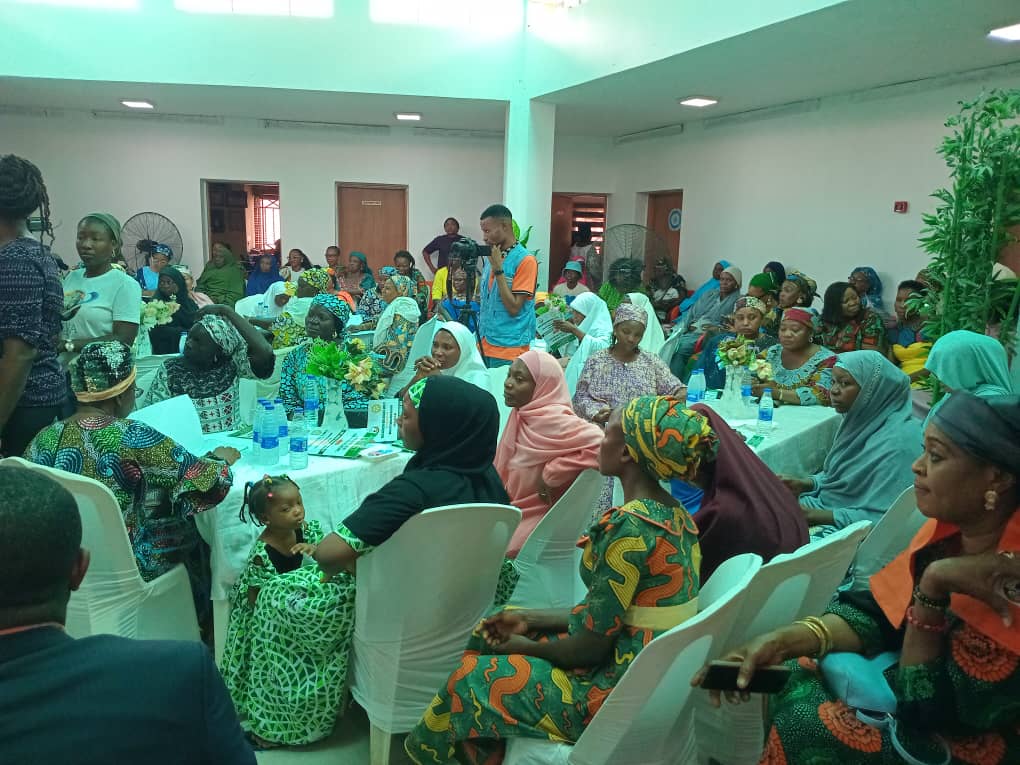As the world celebrates International Women’s Day, stakeholders in Nigeria have stressed the importance of amplifying the voices of rural women in decision-making spaces.
This call was made at the 2025 International Women’s Day celebration, organized by the Nigeria Association of Women Journalists (NAWOJ) FCT in collaboration with the Wives of FCT Traditional Rulers Association in Abuja.
Stakeholders, including civil society organizations, rural women, and well-meaning Nigerians, converged to discuss the challenges facing rural women and the need to empower them to take their rightful place in decision-making spaces.
The event, themed “Accelerate Action: Amplifying the Voices of Rural Women,” aimed to bring to the fore the critical role rural women play in Nigeria’s development and the importance of involving them in decision-making processes that affect their lives and communities.
In her speech, the Chairperson of NAWOJ FCT Chapter, Bassey Ita Ikpang, emphasized the need to empower rural women.
“Rural women are the backbone of our communities, and their voices must be heard,” she said. “We must create opportunities for them to participate in decision-making processes and ensure that their concerns are addressed.”
She noted that the event’s focus was to bring the struggles, contributions, and aspirations of rural women to the forefront, urging the media to play a pivotal role in amplifying their voices.
NAWOJ National Chairperson, Aisha Ibrahim, represented by Evelyn Onyilo, commended NAWOJ FCT for consistently organizing impactful programs aimed at elevating the status of women and girls.
Similarly, the wife of the Ona of Abaji and President of the Wives of FCT Traditional Rulers Association, Hajiya Hauwa Ibrahim, shared key takeaways from the recently concluded Commission on the Status of Women (CSW69).
She emphasized the need for increased investment in education, healthcare, and economic empowerment programs for women and girls.
She also explained the role of traditional rulers in promoting positive cultural practices and challenging harmful norms and stereotypes.
“My experience at CSW69 reinforced the importance of collaboration and partnership in achieving gender equality and women’s empowerment,” she said.
She called on traditional leaders, government agencies, civil society organizations, and women’s rights activists to work together to create a more just and equitable society.
The keynote speaker, Luka Ayedoo Nizassan III, the Etsu of Kwali, reiterated the crucial role rural women play in society.
“They are farmers, entrepreneurs, caregivers, and community leaders. They work tirelessly to feed nations, nurture families, and sustain local economies. Yet, despite their immense contributions, they often remain unheard, unseen, and underserved,” he said.
He lamented that rural women face limited access to education, healthcare, financial resources, and decision-making platforms, making them more vulnerable to poverty, climate change, and gender inequality.
“It demands our collective efforts to dismantle the barriers that hinder women’s progress, challenge stereotypes that limit their potential, and create a society where every woman has an equal opportunity to thrive,” he said.
He emphasized that achieving this requires investment in education and digital empowerment, enabling rural women to access information, markets, and opportunities.
“Technology should not be a privilege—it should be a bridge connecting rural women to the global society,” he added.
The chief host, Grace Ike, Chairman of the NUJ Abuja Council, urged women to work in solidarity.
“I encourage all of us to continue working together, raising our voices in unison, and being agents of change in our respective fields. Only by amplifying the voices of rural women and providing them with a platform to share their stories can we move towards a future that is truly equitable for all women and girls,” she said.
As part of the event, two rural women were appreciated with a token of ₦50,000 each.














